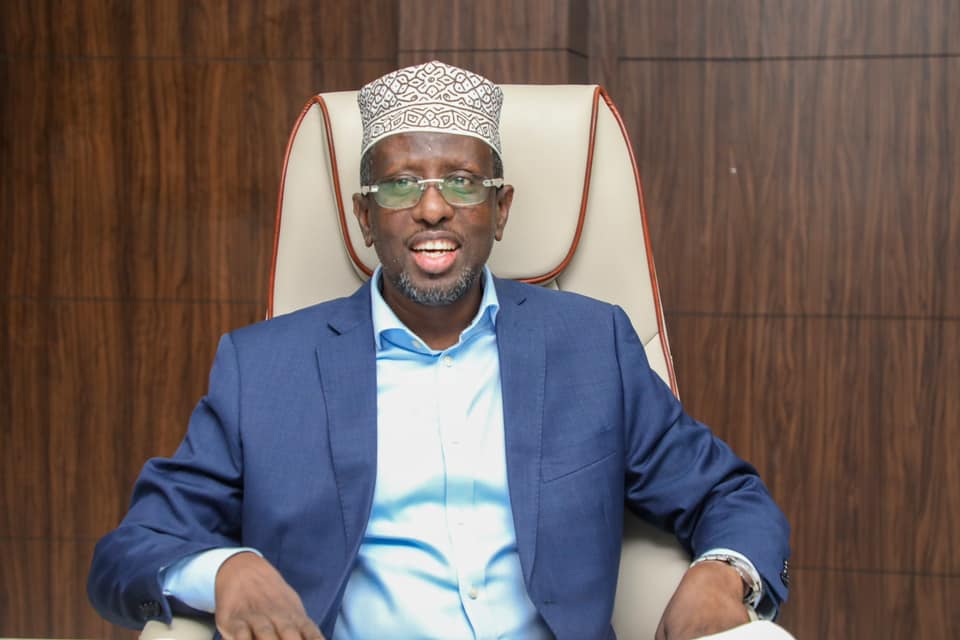By Amb. HU Changchun, Head of Mission of China to the African Union
The Third Belt and Road Forum for International Cooperation, held in Beijing from October 17 to 18, has brought together representatives from over 140 countries and 30-plus international organizations, including African heads of state and government from Ethiopia, Egypt, Kenya, the Republic of Congo and Mozambique. Coinciding with the 10th anniversary of the Belt and Road Initiative (BRI), the forum was held under the theme “High-quality Belt and Road Cooperation: Together for Common Development and Prosperity” and featuring in-depth discussions on connectivity, green development and digital economy. During the forum, a List of Multilateral Cooperation Deliverables and a List of Practical Projects were released, a series of cooperation projects were negotiated and signed. These results will effectively help Belt and Road countries to break through the bottleneck of connectivity, eradicate poverty and improve people’s livelihood.
The BRI is a great cause for human development and a Chinese programme for global common wealth. As a major international cooperation initiative put forward by Chinese President Xi Jinping in 2013, it has won positive response and broad support from countries along the route and has become one of the most influential and popular international cooperation platforms in the world today. It has also become a new engine for increasing trade and investment, bringing tangible benefits to participating countries.
Over the past decade, China has signed more than 200 Belt and Road cooperation documents with over 150 countries and 30-plus international organizations, with commitments made for more than 3,000 projects. China’s trade in goods with Belt and Road countries doubled from 1.04 trillion U.S. dollars to 2.07 trillion U.S. dollars. The cumulative value of imports and exports amounted to 19.1 trillion U.S. dollars and two-way investment exceeded 270 billion U.S. dollars between China and Belt and Road countries. Chinese enterprises has invested 57.13 billion U.S. dollars, creating 421,000 jobs for local residents. It is expected to lift nearly 40 million people out of poverty. China has also actively promoted the alignment of the Belt and Road Initiative with the United Nations 2030 Agenda for Sustainable Development, the AU Agenda 2063, the Eurasian Economic Union and other regional development strategies, contributing Chinese wisdom and solutions to the global governance reform and the global development process.
Africa is an active and important participant in the Belt and Road Initiative. The Belt and Road Initiative has blazed a new path for China-Africa exchanges and cooperation. China-Africa relations have continuously reached a new height and entered a new stage of jointly building a high-standard China-Africa community with a shared future in the past decade. Through BRI Initiative and guided by the principle of sincerity, real results, amity, and good faith, China has helped build more than 6,000 kilometers of railway, over 6,000 km of highways and more than 80 large power facilities on the African continent. Numerous landmark projects have emerged, including the African Union Headquarters, the Headquarters of the Africa Centers for Disease Control and Prevention (Africa CDC), the Mombasa-Nairobi Railway and the Addis Ababa-Djibouti Railway. China and Africa have carried out extensive production capacity cooperation, with investment in 52 African countries, creating millions of jobs for Africa. China’s investment stock in Africa has increased from 21.2 billion U.S. dollars in 2012 to 56 billion U.S. dollars in 2022, and the areas of investment in Africa are constantly expanding.
China and Africa have jointly built the “Belt and Road” guided by the three concepts: first, focus on promoting employment in the countries where the projects are located. Chinese enterprises operating in Africa employs nearly 90% of local employees. Second, highlight technology transfer to Africa. 50% of Chinese private enterprises have invested in new products and services to the African market, and 1/3 have invested in new technologies, which has played a positive role in Africa’s industrialization. Third, emphasize helping Africa to crack the bottleneck of economic growth. China is constantly innovating its pathway of infrastructure cooperation with Africa, encouraging enterprises to gradually shift to the integration of “investment-construction-operation”, so as to facilitate Africa’s connectivity and construction of AfCFTA .
China has always adhered to the the principle of sincerity, real results, amity and good faith, and has continuously deepened its cooperation with Africa. At the recent 15th BRICS summit in Johannesburg, South Africa, President Ramaphosa and President Xi Jinping co-chaired the China-Africa Leaders’ Dialogue, fully reflecting our close relationship and the great importance we attaches to the development of mutual relations. At the meeting, President Xi Jinping announced the Initiative on Supporting Africa’s Industrialization, the Plan for China Supporting Africa’s Agricultural Modernization, and the Plan for China-Africa Cooperation on Talent Development, which will further strengthen China-Africa practical cooperation and facilitate the cause of Africa’s integration and modernization. China will, as always, promote market-oriented, enterprise-oriented and win-win investments in Africa, providing an important impetus for Africa’s self-generated and sustainable growth.
The Belt and Road Initiative originated in China, but belongs to the world. China will take the 10th anniversary of the Belt and Road Initiative as an opportunity to work with Africa. China will follow the principle of extensive consultation, joint contribution for shared benefits, adhere to the concept of open, green and clean cooperation, seek the goal of high-standard, sustainable and beneficial to livelihood. China will continue to expand cooperation in various fields, promote joint construction of industrial chains and supply chains, and firmly promote high-quality development of the Belt and Road. China will enable more tangible outcomes of cooperation to benefit the Chinese and African people and make greater contribution to the accelerated implementation of the UN 2030 Agenda for Sustainable Development and the common development of all countries.
Ambassador HU Changchun is Head of Mission of China to the African Union










